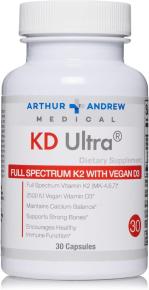Herbs offer nourishing, varied flavors in recipes, brew a soothing cup of tea, and add nutrients and glorious scents to some favorite natural beauty products. What’s more, many of us turn to healing plants in concentrated, supplemental form to help support or regain optimal health.
Peace of Mind
Those who are interested in the healing properties of herbs, especially, have an investment in their purity and quality. “It’s ironic that people taking herbal supplements for health may be unaware that the herb could have grown next to a highway or undergone chemical processing,” says Paul Schulick, founder and CEO at New Chapter. If contaminants are present in a fresh herb, these toxins may be increasingly concentrated as the herb is processed.
The good news? According to Sidney Sudberg, DC, LAc, RH (AHG), “Many tests ensure identity, purity, quality, strength, and composition of the herb, which helps maintain the safety of what enters the marketplace.” For some, the organic seal offers additional peace of mind. Standards for organic herbs are the same as for all organic agricultural products: Organic certification allows no toxic and persistent pesticides or herbicides in farming—ensuring fewer unwanted chemicals in the final product. It also supports a healthy ecosystem and work environment back on the farm.
Natural Defenses
Irradiation, a process that uses radioactive gamma rays to kill certain bacteria and pathogens, is an alternative to fumigation on most conventional spices, herbs, and seasonings since the U.S. Food and Drug Administration approved this technique in 1986. “No reliable, long-term studies have been done on the dangers of ingesting irradiated foods,” says Kathy Larson, vice president of corporate social responsibility at Frontier. “Both workers in irradiation facilities and the people and animals in nearby communities are at risk of being exposed through leaks.”
Organic standards prohibit irradiation. Alternative methods of quality- and safety-control include heat and ozone treatments. Irradiation is not only banned for herbs grown, harvested, and shipped in accordance with organic standard, its effects may not be necessary.
“Many [herbs] produce oils that keep insects at bay; in fact, some are themselves used as insect repellents,” explains Luddene Perry, author of A Field Guide to Buying Organic. Botanicals’ own natural defenses help them thrive under organic cultivation.
Cost and Benefits
Is the effort and expense worth it for people who grow and process herbs organically? Holly Givens, communications director at the Organic Trade Association, points out that not using toxic substances benefits farmers, their families, and communities—both in the U.S. and in developing countries. Organic production also promotes sustainability.
Frontier’s Larson concurs. Growing herbs organically “helps prevent soil erosion, saves the energy it takes to produce synthetic fertilizers, and helps keep the carcinogens found in most herbicides and pesticides out of our water systems and the food we eat. The world’s demand for products is met without compromising the earth for future generations.”
